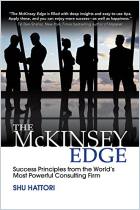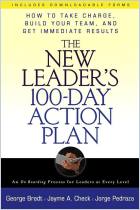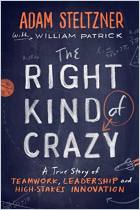Join getAbstract to access the summary!

Join getAbstract to access the summary!
Lisa Goldman, Kate Purmal and Anne Janzer
The Moonshot Effect
Disrupting Business As Usual
Wynnefield Business Press, 2016
What's inside?
Going to the moon changed everything. How will your moonshot change your business?
Recommendation
In this lively, invigorating guidebook, consultant Lisa Goldman and former CEO of U3 Kate Purmal use the Apollo missions as a metaphor for projects that disrupt routines and achieve major breakthroughs. They focus on both the visionary and the managerial aspects of innovation: selecting projects, developing teams, maintaining enthusiasm, and so on. Some content will be familiar to experienced readers, but this is a useful synthesis built on an intriguing metaphor. getAbstract suggests this space shot as a blast for anyone guiding a breakthrough project.
Summary
About the Authors
International management consultant Lisa Goldman was involved with Nokia’s MOSH (“mobilize and share”) project. Former CEO of U3 Kate Purmal was involved with Palm, Inc.’s creation of the PalmPilot. Anne Janzer wrote Subscription Marketing and The Writer’s Process.




















Comment on this summary